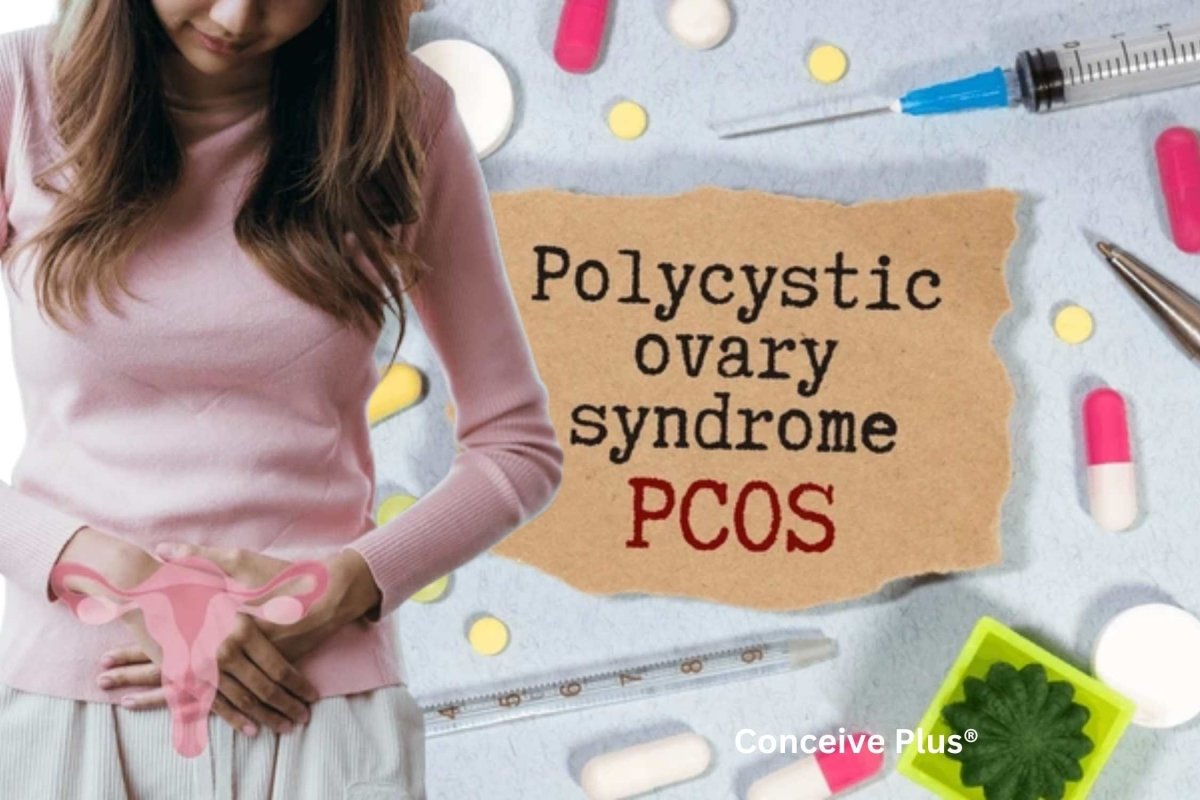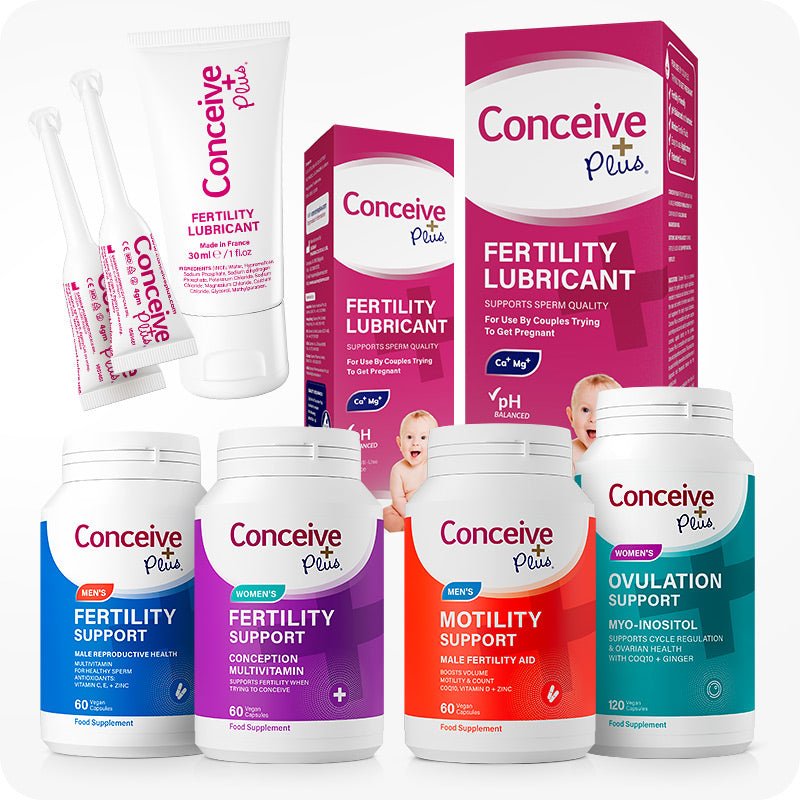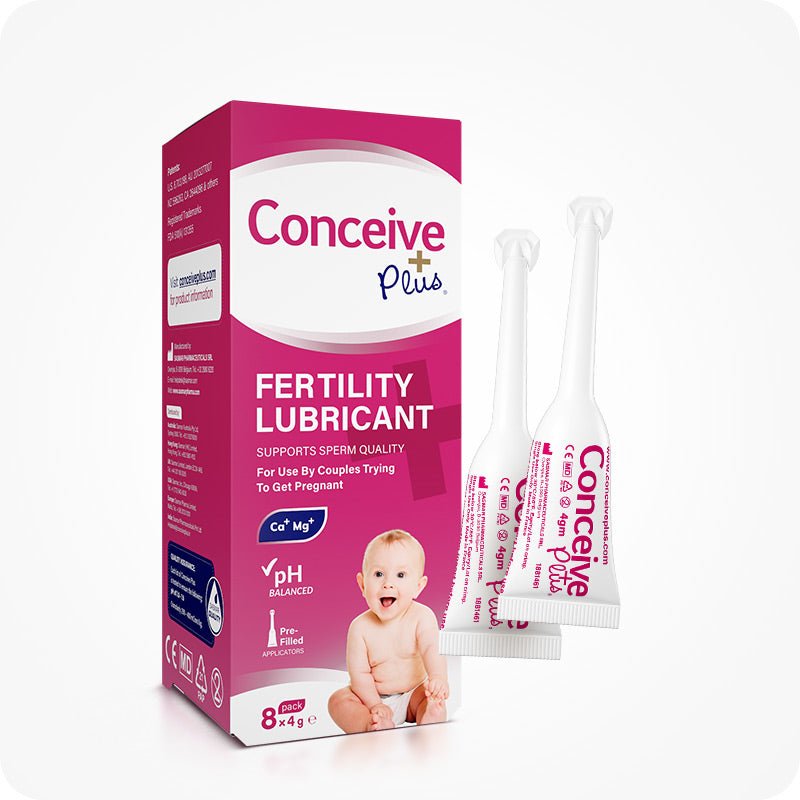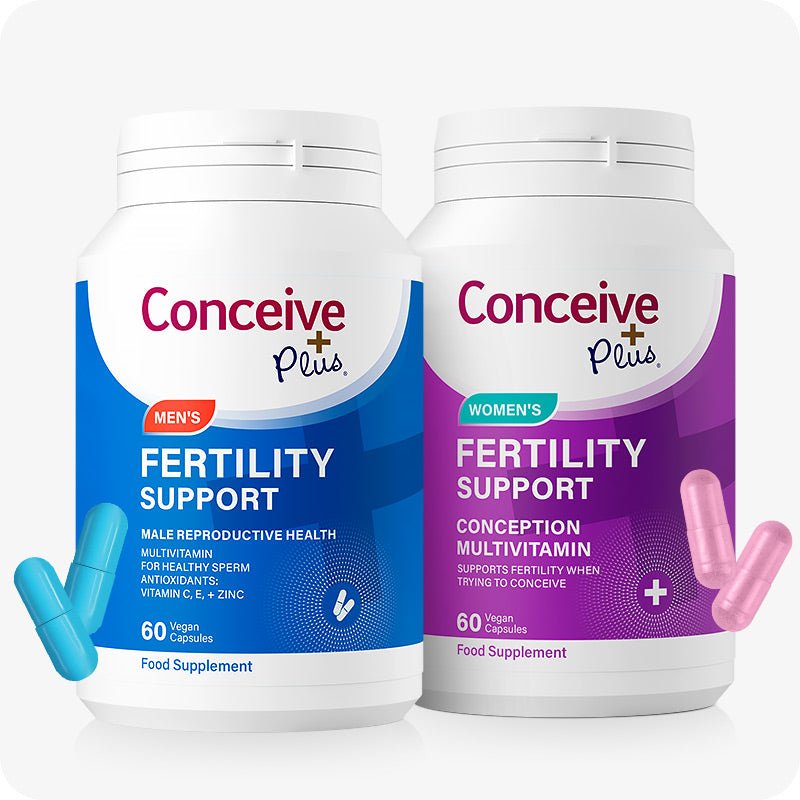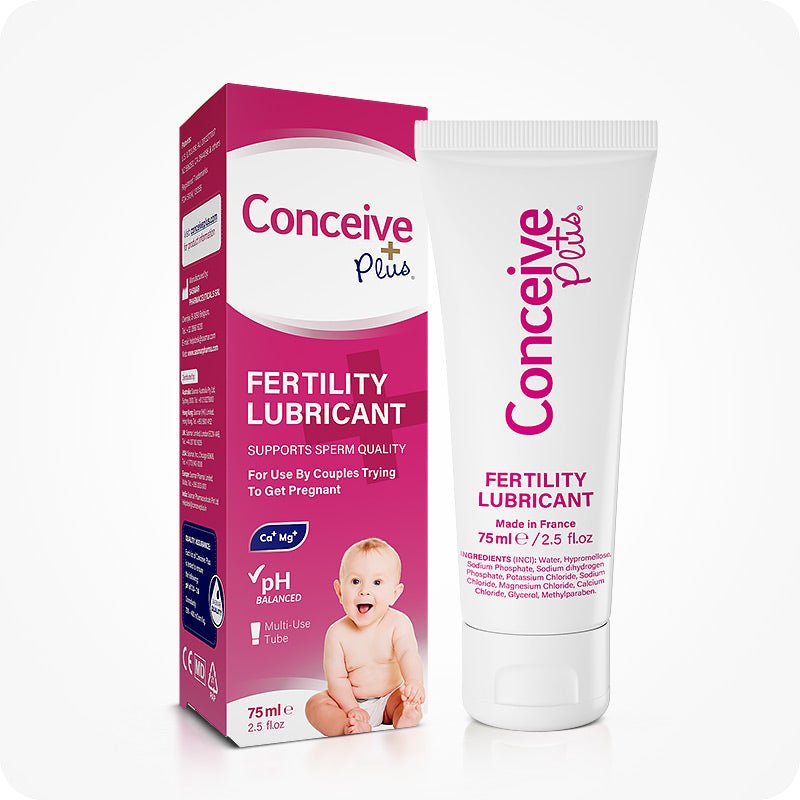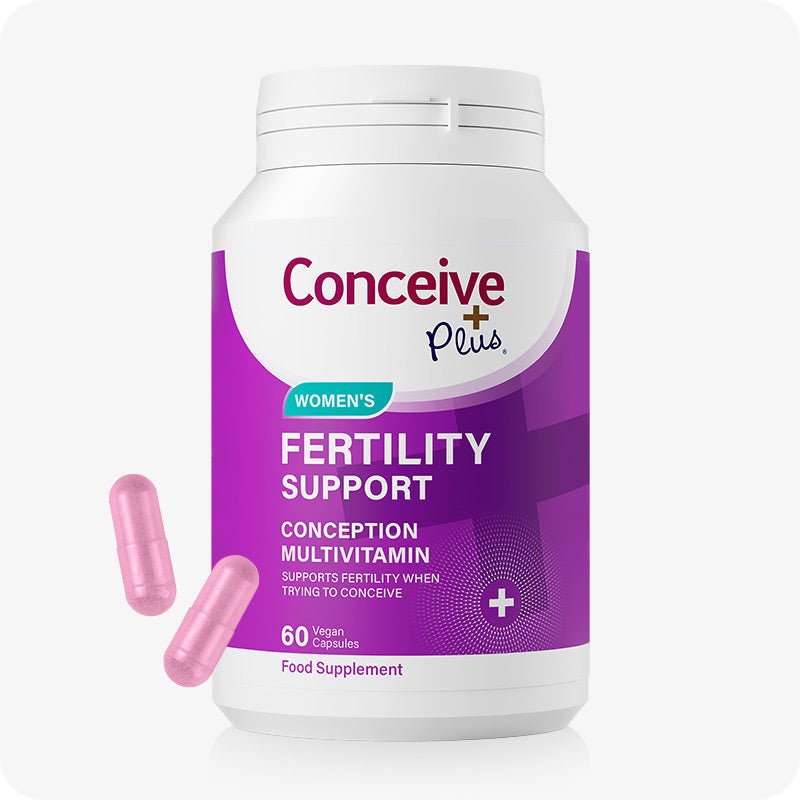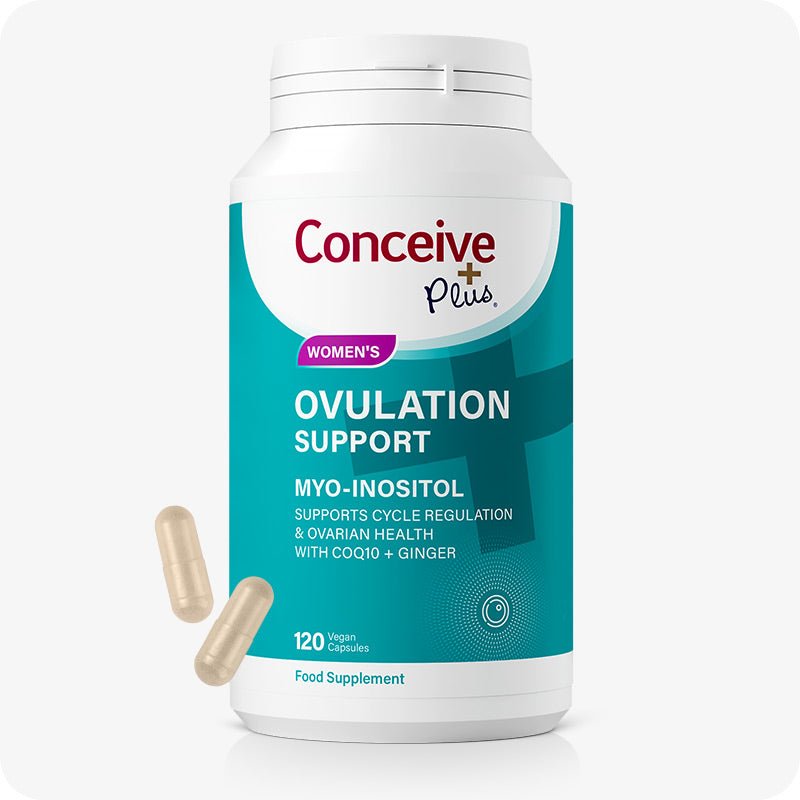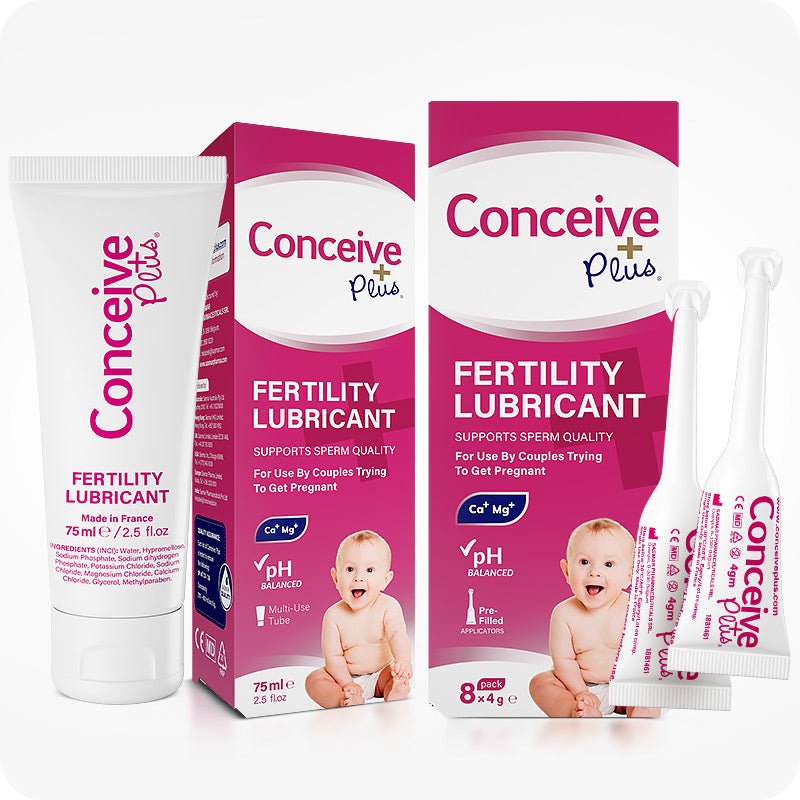Inositol Fertility Benefits: Improve Your Chances of Conceiving

Inositol is a sugar that is naturally produced by the body and used to manage insulin, hormone balance, brain function, and regular ovulation. Women with polycystic ovary syndrome (PCOS), however, can experience difficulties in processing inositol. Which can trigger irregular menstruation, issues with ovulation, and difficulties conceiving.
Several studies have found that PCOS, inositol fertility, and fertility are closely linked. In addition to improving insulin resistance, inositol supplements also benefit women with PCOS in a variety of other ways.
Read on for more clarification on how inositol can help rebalance hormones, regulate menstrual cycles, improve ovulation and enhance your chances of getting pregnant.
What is PCOS and How Does it Affect Fertility?
Polycystic ovary syndrome (PCOS) is a hormonal disorder that affects how the ovaries function in women of reproductive age [1]. Women with PCOS commonly suffer from hormone irregularities involving excess androgens (male hormones), enlarged ovaries with multiple underdeveloped follicles that do not release eggs, and insulin resistance.
Insulin resistance, which is when they body finds it difficult to absorb and use insulin, can result in acne, facial hair growth, and weight gain, as well as infertility.
Fertility issues caused by PCOS commonly include:
- Irregular Ovulation: PCOS typically disrupts the release of eggs from the ovaries making it challenging to predict ovulation to get pregnant.
- Hormonal Imbalances: Elevated levels of androgens (such as testosterone) and insulin resistance can interfere with the development and release of eggs, thereby impacting fertility.
- Ovarian Cysts: Women with PCOS can develop several small cysts on their ovaries that affect ovarian function and the timely release of an egg.
- Insulin Resistance: Insulin resistance, which is common in women with PCOS, can exacerbate hormone imbalances and adversely affect ovulation, meaning conceiving becomes more difficult.
- Increased Miscarriage Risk: When pregnancy occurs, women with PCOS often face a higher risk of miscarriage due to hormonal and metabolic issues.
What is Inositol?
Inositol is a sugar-like substance that is naturally produced by the body. It’s also found in certain foods such as beans, fruits, grains, and legumes and is available in supplement form. Although it’s often referred to as vitamin B8, inositol is not a vitamin, however, it is essential for cell function and development [2].
Inositol is also known to positively impact insulin absorption, regulate hormones, and improve chemical messenger function in the brain.
However, even though inositol is naturally produced by the body, its availability and benefits are often hindered by high-sugar diets and insulin resistance. Studies have also shown that it is more difficult for women with PCOS to process inositol naturally.
Are there Different Types of Inositol?
Yes, scientists have identified nine types of inositol, two of which are known to improve fertility and relieve the symptoms of PCOS. When it comes to inositol and fertility, the two inositols known to helo are myo-inositol (MI) and D-chiro-inositol (DCI).
What is Myo-Inositol?
Myo-inositol (MI) constitutes 99% of inositols and is also known as inositol. Even though MI is naturally found in the above-mentioned foods, it can be hard to consume adequate amounts through diet alone. This is particularly true for women with PCOS, for whom it’s difficult to absorb inositol.
That said, MI is essential for hormone regulation and insulin function, which makes it a valuable option for managing PCOS symptoms and boosting fertility.
What is D-chiro Inositol?
D-chiro inositol (DCI) is converted from Myo-inositol, but usually in only very small amounts. Interestingly, MI and DCI are almost identical on a molecular level, but minute differences tell them apart. These minute differences enable each to play an essential role in the body, while also allowing them to work together.
For example, MI helps in activating insulin transporters and also aids the body in using glucose effectively. While DCI aids in glycogen synthesis by adding glucose molecules to chains of glycogen for storage.
When inositols are naturally produced and absorbed in the body, the ratio of 40:1 typically applies to MI and DCI. Therefore this blend is also important when considering inositol supplements for improved fertility with PCOS.
Why The Blend of Myo-Inositol and D-Chiro Inositol is Important for Fertility
When inositol is naturally made in the body, only a small portion of MI is converted into DCI. According to research, the ratio of 40:1 (MI:DCI) is the perfect combination of inositol to manage insulin production, maintain hormone balance, and ensure optimal ovarian function.
Research shows that women with PCOS can experience imbalances in MI and DCI production. For some, the challenge lies in converting MI to DCI, while for others, the overproduction of DCI prevents the body from absorbing MI.
Therefore, it’s important to check that inositol supplements for PCOS have a blend of 40:1 (MI:DCI) to improve symptoms, regulate ovulation, and enhance fertility.
For even more essential tips on how to get pregnant, be sure to check out our guide 'How to Get Pregnant: The Basics' for foundational strategies to boost your conception journey.
How Inositol Improves Fertility in Women with PCOS?
In addition to regulating the absorption of insulin, the perfect blend of MI and DCI provides several other benefits for women with PCOS who are hoping to conceive [3].
For example, women with PCOS typically have an imbalance of MI and DCI, which can affect their menstrual cycle, egg production, and the quality of their eggs. Taking the perfect blend of MI and DCI can help manage all of the above.
Menstrual Cycle: Women with PCOS are known to experience irregular menstruation or none at all. Research has shown that a regular inositol blend of 40:1 can help lower the production of male hormones like testosterone and thereby regulate menstrual cycles.
Regular Ovulation: An imbalance of MI and DCI has been found to affect ovulation in that it becomes more difficult for eggs to be released. Taking the perfect blend of MI and DCI in supplement form is believed to regulate this imbalance and make it easier for women to PCOS to ovulate.
Egg Quality: Unless MI levels are adequate, eggs are unable to fully mature. In this respect, research has shown that women with PCOS tend to produce less mature eggs (oocytes) than women who do not have PCOS. However, researchers have also recognised that women with PCOS taking regular inositol supplements produce better quality and more mature eggs.
Lowered Risk of Gestational Diabetes
Insulin resistance during pregnancy can cause gestational diabetes and result in an early delivery and larger babies. However, taking the perfect blend of MI and DCI can help manage glucose levels and reduce the risk of gestational diabetes.
Improved IVF Outcomes
Studies have also found that taking regular inositol supplements can improve IVF outcomes by improving the quality of eggs and reducing the need for gonadoprins.
How Long Does Inositol Take to Improve Fertility?
Although there is no set timeframe for inositols to work, studies show that daily supplementation shows positive effects for more regular menstruation and ovulation within 3-4 months. For example, when used to support IVF, fertility excerpts recommended taking inositol supplements 2-3 months before treatment begins.
For more detailed insights into how inositol supplements can boost fertility and regulate menstrual cycles, be sure to explore our guide 'Inositol Supplements: What Are They and How Do They Help.'
The Bottom Line
Although naturally produced in the body, for one reason or another, some women do not process inositol in the way that most do. When inositol is not processed correctly, it often results in PCOS, which can cause difficulties with insulin resistance, ovulation, and inositol fertility.
If you are trying to conceive with PCOS, inositol supplements with the recommended blend of 40:1 can help regulate periods, improve egg quality and ovulation, and significantly increase the likelihood of getting pregnant naturally. Due to their influence on the female reproductive system, inositols are also known to improve IVF outcomes.
References
- NHS - Polycystic Ovary Syndrome - https://www.nhs.uk/conditions/polycystic-ovary-syndrome-pcos/
- Verywell Health - What to Know About Taking Inositol for PCOS - https://www.verywellhealth.com/inositol-for-pcos-info-2616286
- National Library of Medicine - Myo-Inositol as a Key Supporter of Fertility and Physiological Gestation - https://www.ncbi.nlm.nih.gov/pmc/articles/PMC8227031/








